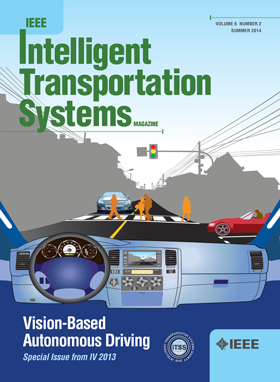Adjustment of Energy-Saving Train Operations Based on Synergies of All Trains in the Same Power Supply Area
IF 7.9
1区 工程技术
Q1 ENGINEERING, CIVIL
IEEE Transactions on Intelligent Transportation Systems
Pub Date : 2025-03-05
DOI:10.1109/TITS.2025.3545480
引用次数: 0
Abstract
As a major use of electricity, the energy efficiency of urban railways is of great concern. To reduce the operational energy consumption of a metro line, this paper proposes a two-stage optimization model for energy-efficient train operations based on three aspects: train operation strategies at inter-stations, running time allocation within an operating cycle, and utilization of regenerative braking energy of multiple collaborative trains in the same power supply area. The first stage is based on a multi-objective optimization algorithm, which optimizes the position-speed curves at each inter-station to obtain a series of energy-saving running curves and the corresponding Pareto fronts. In the second stage, a single-objective optimization algorithm and parallel computing method are used to solve the integrated optimization model for train operations with the minimum net energy consumption as the objective function, to reduce the net energy consumption in an operating cycle. Finally, numerical experiments are carried out with data on the Beijing Yizhuang line. The results show that the proposed bi-level programming model and solution methods have a good energy-saving effect.求助全文
约1分钟内获得全文
求助全文
来源期刊

IEEE Transactions on Intelligent Transportation Systems
工程技术-工程:电子与电气
CiteScore
14.80
自引率
12.90%
发文量
1872
审稿时长
7.5 months
期刊介绍:
The theoretical, experimental and operational aspects of electrical and electronics engineering and information technologies as applied to Intelligent Transportation Systems (ITS). Intelligent Transportation Systems are defined as those systems utilizing synergistic technologies and systems engineering concepts to develop and improve transportation systems of all kinds. The scope of this interdisciplinary activity includes the promotion, consolidation and coordination of ITS technical activities among IEEE entities, and providing a focus for cooperative activities, both internally and externally.
 求助内容:
求助内容: 应助结果提醒方式:
应助结果提醒方式:


